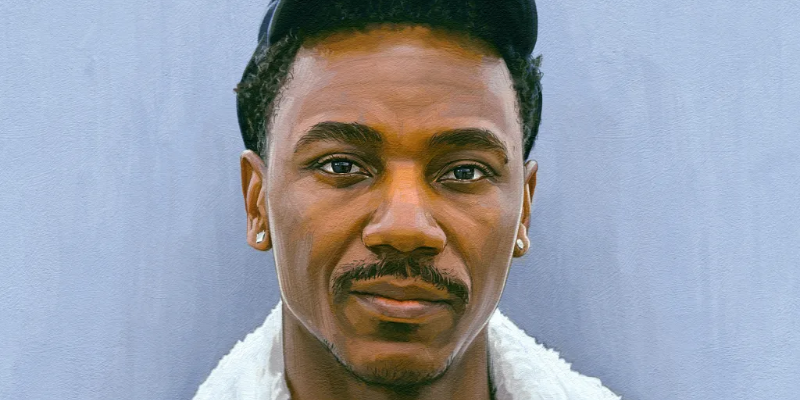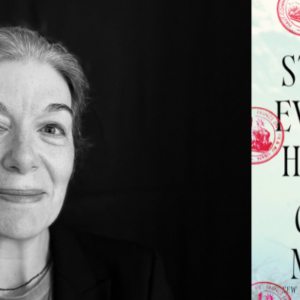Jerrod Carmichael on Using Art to (Try to) Solve Life’s Problems
This Week on the Talk Easy Podcast with Sam Fragoso
Illustration by Krishna Bala Shenoi.
Talk Easy with Sam Fragoso is a weekly series of intimate conversations with artists, authors, and politicians. It’s a podcast where people sound like people. New episodes air every Sunday, distributed by Pushkin Industries.
*
In just under a decade, comedian, writer, and actor Jerrod Carmichael has had a remarkably varied career. On the heels of his Emmy-winning HBO special Rothaniel, he embarked on a personal new project: Jerrod Carmichael Reality Show.
Carmichael joins us today to discuss the origin of the program, his early days making his NBC sitcom, and why he decided to broadcast a deeply intimate conversation on the reality show. Then, he unpacks his view of the camera as a vessel for honesty, the response from audiences witnessing Jerrod ‘Truman Show’ himself, and his three-decade history of storytelling.
On the back-half, Carmichael describes the artists who inspired his work, a formative performance in his first HBO special Love at the Store, and the evolution of his comedy. To close, he reflects on the central truth he explores in this new series and how he hopes this art will at long last set himself—and his family—free.
Subscribe and download the episode, wherever you get your podcasts!
From the episode:
Sam Fragoso: Bo [Burnham] and some other friends of yours have said that you’re creating chaos and destruction in your life by making this show. And you’ve said, “No, I’m trying to attempt to fix things, to heal things.” Do you believe, in your heart, the most effective way to heal things, to fix things, is to address these private matters publicly?
Jerrod Carmichael: I don’t think it’s the best way, and that’s never been my argument. It’s the only answer I had. I’m submissive and vulnerable in art, and it allows me to go to some place that I’m afraid to go in life, just day to day life. I’m using art to try and solve my life’s problems. It’s unorthodox, strange, unethical, maybe, in some ways.
SF: Do you believe that?
JC: Yeah, maybe, but I don’t…
SF: You don’t care.
JC: No, because the problem still exists. Regardless of the ethics, or people’s judgement of the ethics or the method, the problem still exists, and I’d like to solve the problem. To be honest with you, I know the conversation will go the same way even without the cameras. If we can’t talk about it, but I’m going to make an attempt, and if the result of the attempt is the same, then here— I’ll show you me doing it. Because that actually gives purpose. I can show myself I tried, and I can show you I tried. That gives some purpose, some meaning to it.
SF: It almost seems like, if you know in your heart you’re not going to get a satisfying answer, then you at least want to know that you got a program out of it, and you made art out of it.
JC: Yeah. I made something out of it.




















